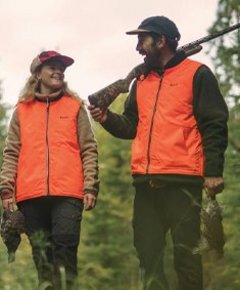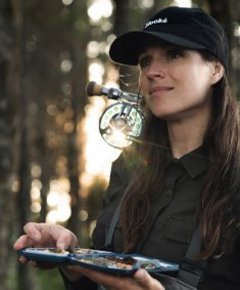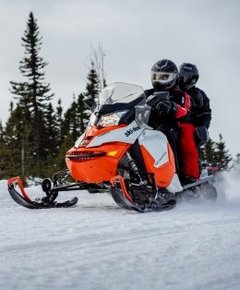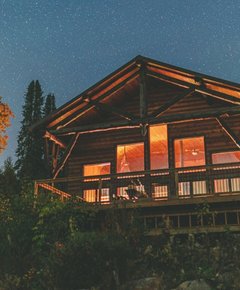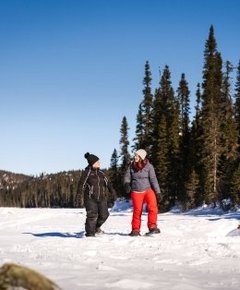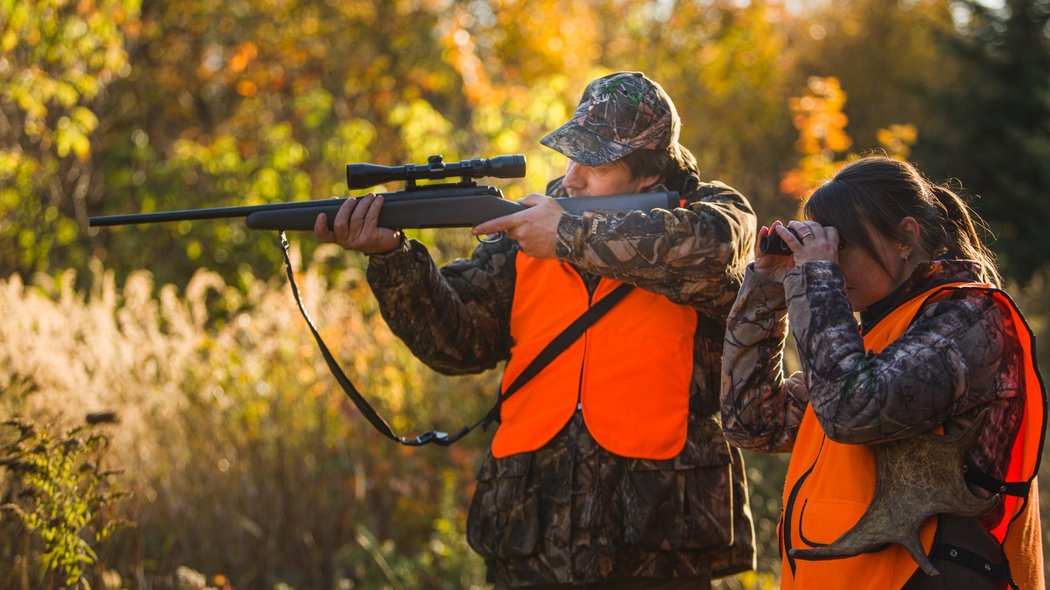
Hunting is permitted almost year-round in Quebec—but not just anywhere, or for anything, or in any form! Each year, the Ministère de l’Environnement, de la Lutte contre les changements climatiques, de la Faune et des Parcs (MELCCFP) updates the hunting regulations and calendar for all of the province’s zones and species. It’s the hunter’s responsibility to stay informed! Where should you start? With our outfitters! These professionals have the knowledge to ensure you have a successful hunting experience
Zones and territories
Just like for fishing, Quebec’s vast territory is divided into 29 zones. But there’s one difference: Zone 25 is exclusively for fishing. So, hunting can be done in zones 1 to 24 and 26 to 29. These zones also have subdivisions with specific regulations for certain species. Therefore it’s important to know which zone your chosen hunting area falls into. Staying at an outfitter means you have experts on hand to inform you of the regulations of the zone you’re in.
Once you’ve identified your zone, the next step is choosing the type of territory you want to hunt on. The best choice, in our opinion, is at an outfitter!
Outfitters are private businesses that offer accommodations, family activities, and opportunities for hunting and fishing. They come with numerous advantages. Some outfitters have exclusive hunting rights on their land, meaning hunters must get permission from the outfitter to hunt there. Others have non-exclusive rights and operate on public lands where no special permission is needed to hunt. The good news is that they’re everywhere throughout Quebec! By choosing one of our 339 outfitters, you’re guaranteed access to a well-managed territory where hunting is permitted. To find the best one for your next hunting trip, use our search tool or consult our brand-new 2024 Outfitter Guide (available in French only).
It’s important to know that Northern Quebec (zones 17, 22, 23 and 24) is governed by the Act Respecting Hunting and Fishing Rights in the James Bay and New Quebec territories. Home to Cree, Inuit and Naskapi Indigenous communities, these hunting territories require prior authorization, and the use of crossbows is prohibited. To ensure you’re hunting in the right place at the right time, consult one of the 18 outfitter camps in Nunavik and Eeyou Istchee Baie-James. Besides being located in stunning wilderness that’s ideal for hunting, the outfitters here know the local communities well (some are even part of them). Indigenous guides can offer you a one-of-a-kind experience, immersing you fully in their culture. They’ll share their knowledge and hunting practices, which are deeply rooted in their values.
Hunting seasons by species
Hunting seasons vary depending on a number of factors: type of game hunted, zone, type of weapon, and age and sex of the animal. Here’s a brief summary of these seasons. You can find all the details at the MELCCFP website.
- Moose: September and October
- White-tailed deer: Generally in October and November, but on Anticosti Island the season runs from August to December.
- Black bear: The season is split into two: May and June, and September and October.
- Wild turkey: Spring season is in April and May, and the fall season is in late October.
- Small game: Varies by species. For hares and rabbits, it’s roughly September to April. Groundhogs can be hunted year-round. If unsure, check the small game hunting calendar.
- Migratory birds: The hunting of ducks, geese and other migratory birds has its own set of regulations and permits. Hunting is mainly in the fall, but it varies by species (e.g. snow geese can be hunted in the spring).
- Frogs (yes, they can be hunted!): roughly July to November
The exact hunting season dates change each year, so be sure to consult the Quebec ministry’s resources when planning your trip.
Outfitters offer a wide variety of options, making it easy to find the perfect location based on the species you want to hunt. Use our search tool and filter by Species and Types of hunting to find the right camp for your needs.
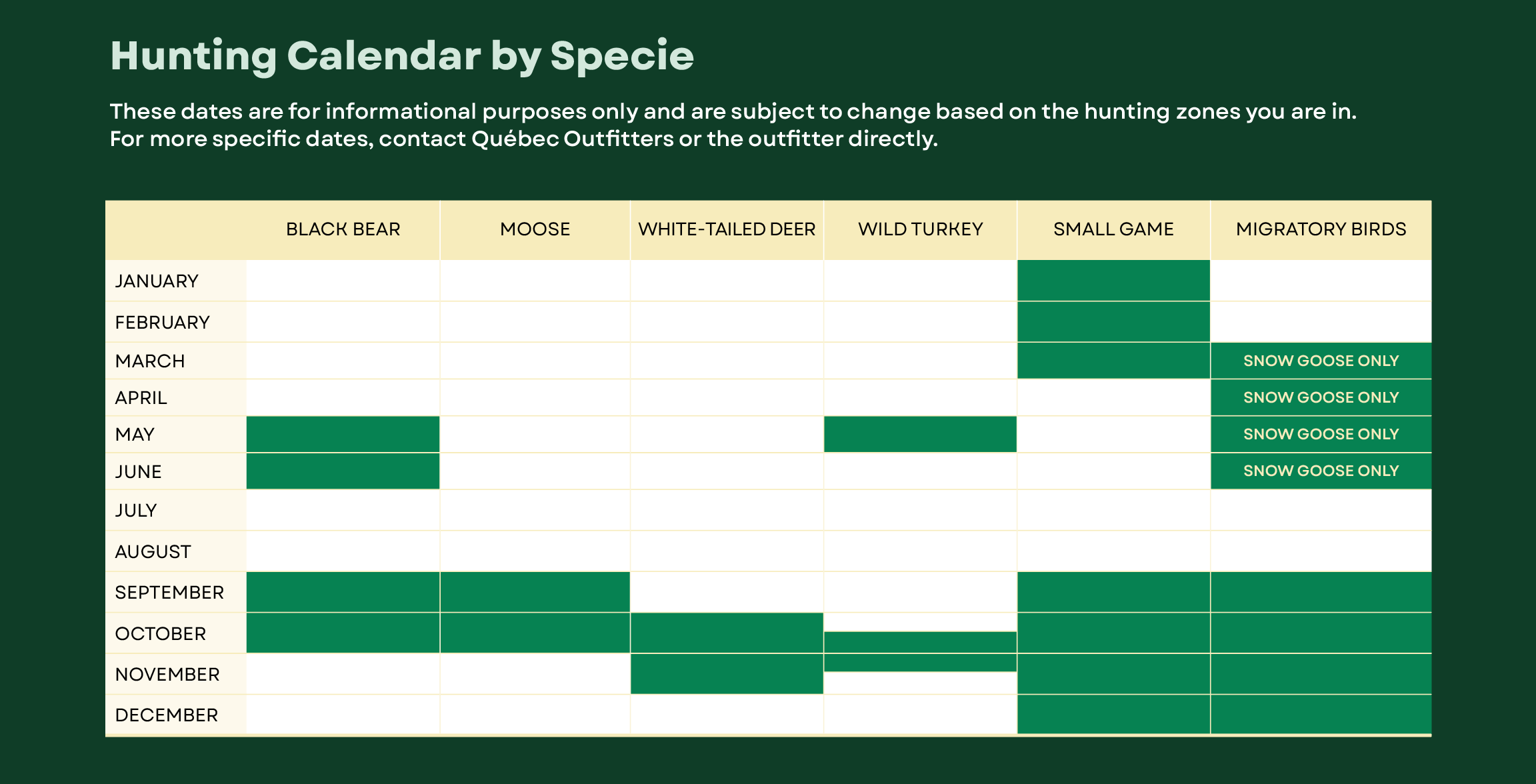
Hunter’s certificate and hunting permits
In order to hunt, you need a hunter's certificate, or an introductory license. The introductory license is valid for one year, and allows you to hunt all species in the company of a hunter's certificate holder, depending on the weapon used. Please note that to hunt hare and rabbit, a hunter's certificate is not required.
Then, to hunt the species of your choice, you need to make sure you have the right licence to do so properly. Several permits are available, depending on species, sex (female permits are generally awarded by lottery) and time of year. Make sure you buy the right permit for each species you wish to hunt, so you can do it properly. For example, there is a wild turkey license for spring, and another for fall.
A final special feature concerns migratory birds, in addition to a hunter's certificate and a provincial small game hunting licence, you'll need to purchase a federal Migratory Game Bird Hunting Permit.
Hunting licenses also limit the number of animals you can take. It's important to be aware of this before you go out into the field, and to share the information with your hunting partners. What's more, if you hunt in an outfitting operation with exclusive rights, these limits may vary, depending on the type of hunting you're doing.
In sum, you need to stay well informed to know when and where to hunt and to use the best resources at your disposal. The Guide du chasseur (Hunter’s Guide), updated annually, is the best resource for a successful and legal hunt. (The publication is available in French only.) If you prefer a more personalized touch, ask our experts in the field: the outfitters! They have all the knowledge needed to make your hunting trip a success, while abiding by all the regulations. With them by your side, you’re ready to mark your calendar and start counting down the days to your next trip with your hunting partners. We wish you the best of luck!
[Translate to English:]
Le certificat du chasseur et les permis de chasse
Il faut savoir que pour chasser, vous avez besoin de posséder un certificat du chasseur, ou encore un permis d'initiation à la chasse. Le permis d'initiation est valide pour une période d'un an et permet de s'initier à la chasse à toutes les espèces en compagnie d'un détenteur d'un certificat du chasseur approprié selon l'arme utilisé. Veuillez noter que pour chasser le lièvre et le lapin, le certificat du chasseur n’est pas nécessaire.
Ensuite, pour chasser l’espèce de votre choix, il faut s’assurer d’obtenir le bon permis. Plusieurs permis sont disponibles selon les espèces, le sexe (les permis femelle sont généralement octroyés par tirage au sort) et la période de l'année. Assurez-vous d'acheter le bon permis pour chacune des espèces que vous souhaitez chasser, afin de le faire dans les règles. Par exemple, il existe un permis au dindon sauvage pour la période printanière, et un autre pour l'automne.
Dernière particularité qui concerne les oiseaux migrateurs, en plus du certificat du chasseur et du permis provincial pour la chasse aux petits gibiers, vous aurez besoin d'acheter le permis de chasse aux oiseaux migrateurs du fédéral.
Le permis de chasse limite aussi le nombre de prises autorisées. Il faut en prendre connaissance avant de vous rendre sur le terrain et partager l'information avec vos partenaires de chasse. De plus, si vous chassez en pourvoirie avec droits exclusifs, il est possible que ces limites soient variables, en fonction de la gestion de la faune sur le territoire donné. Informez-vous auprès de votre pourvoyeur pour obtenir les dernières mises à jour.
Somme toute, il faut être bien informé pour bien savoir quand chasser et utiliser les meilleures sources à votre disposition. Le Guide du chasseur, mis à jour à chaque année, est la meilleure documentation pour une partie de chasse réussie, et surtout, réglementaire! Mais pour ceux qui préféreront un véritable contact humain, les pourvoyeurs sont des as dans le domaine de la chasse. Ils ont toutes les connaissances nécessaires pour que votre séjour de chasse se déroule à merveille et dans les règles de l’art. Avec eux à vos côtés, vous êtes prêts à marquer vos calendriers et à compter les jours jusqu’à votre prochaine sortie avec vos partenaires de chasse. Et on vous souhaite la meilleure des chances!
